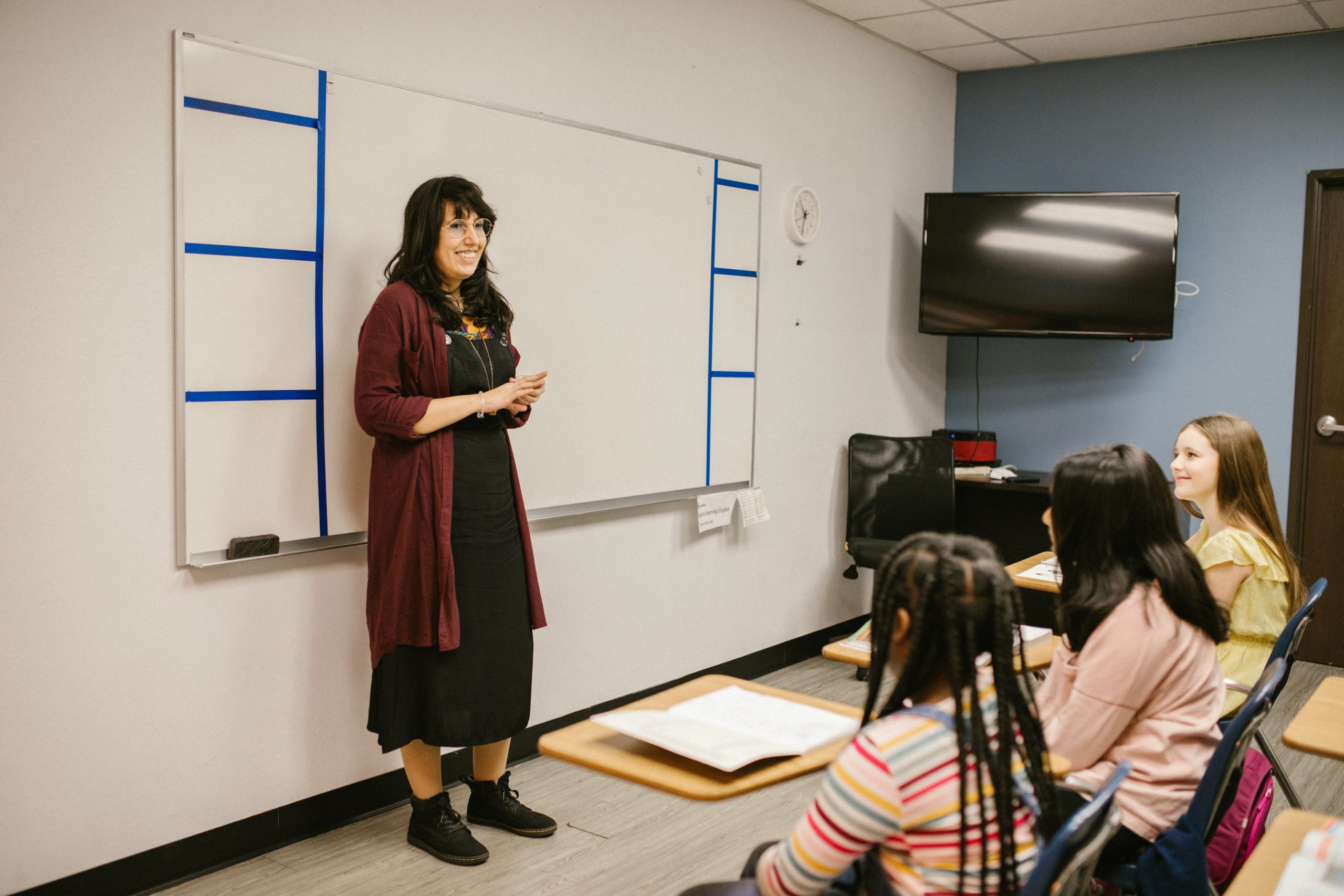Ph.D. on Counseling Education
Ph.D. on Counseling Education is an advanced academic program that focuses on preparing professionals to become leaders in the field of counseling. This doctoral degree equips individuals with the knowledge, skills, and expertise needed to provide high-quality counseling services, conduct research, teach at the university level, and contribute to the advancement of the counseling profession.
Outline:
- Introduction to Ph.D. on Counseling Education
- Importance and relevance of Counseling Education
- Eligibility and prerequisites for pursuing a Ph.D. in Counseling Education
- Specializations within Ph.D. on Counseling Education
- Curriculum and coursework
- Research opportunities and requirements
- Dissertation and defense
- Internship and practical experience
- Career prospects and opportunities
- Professional organizations and networking
- Challenges and considerations in pursuing a Ph.D. on Counseling Education
- Cost and duration of the program
- Accreditation and program credibility
- Success stories and testimonials
- Conclusion
Ph.D. on Counseling Education: Unlocking the Future of Counseling
Counseling Education plays a vital role in addressing the mental health needs of individuals, couples, families, and communities. As the demand for qualified and competent counselors continues to rise, obtaining a Ph.D. in Counseling Education has become an appealing option for those seeking to make a profound impact in this field.
Importance and Relevance of Counseling Education
Counselors are instrumental in providing guidance, support, and therapeutic interventions to individuals facing emotional and psychological challenges. A Ph.D. in Counseling Education enhances the skills and knowledge of professionals, enabling them to excel in their practice and contribute to the advancement of counseling as a discipline.
Eligibility and Prerequisites for Pursuing a Ph.D. in Counseling Education
To pursue a Ph.D. in Counseling Education, individuals must possess a master’s degree in counseling or a related field. Some programs may require specific coursework or professional experience in counseling. Additionally, applicants are expected to demonstrate strong academic capabilities, research aptitude, and a genuine passion for the field.
Specializations within Ph.D. on Counseling Education
Ph.D. programs in Counseling Education often offer various specializations to cater to the diverse interests and career goals of students. Specializations may include Marriage and Family Counseling, Clinical Mental Health Counseling, School Counseling, Addictions Counseling, and Counselor Education and Supervision. These specialized areas allow students to delve deeper into specific domains of counseling.
Curriculum and Coursework
The curriculum of a Ph.D. in Counseling Education typically encompasses a combination of core courses, specialized electives, and research-focused modules. Core courses cover advanced theories of counseling, ethics and legal considerations, advanced assessment techniques, multicultural counseling, and counseling supervision. Specialized electives enable students to gain expertise in their chosen area of concentration.
Research Opportunities and Requirements
Research is a fundamental component of a Ph.D. program in Counseling Education. Students are expected to engage in original research that contributes to the knowledge base of the counseling profession. They may collaborate with faculty members on ongoing research projects or undertake independent studies. Research opportunities allow students to develop critical thinking, data analysis, and scholarly writing skills.
Dissertation and Defense
The culmination of a Ph.D. program is the completion and defense of a doctoral dissertation. The dissertation provides students with an opportunity to conduct an in-depth investigation on a specific topic within counseling education. It requires extensive research, data collection, analysis, and the ability to present findings in a clear and concise manner. The defense involves an oral examination by a committee of faculty members who evaluate the student’s research and knowledge.
Internship and Practical Experience
In addition to coursework and research, Ph.D. programs in Counseling Education often include internships or practical experiences. These opportunities allow students to apply their theoretical knowledge in real-world settings. They may work in counseling centers, schools, hospitals, or community agencies under the supervision of experienced professionals. Practical experience helps students develop clinical skills and gain a deeper understanding of the complexities of counseling practice.
Career Prospects and Opportunities
A Ph.D. in Counseling Education opens up a wide range of career prospects and opportunities. Graduates of this program can pursue academic positions as professors or researchers in universities and colleges. They can also work as counselors in private practice, mental health clinics, community agencies, or government organizations. Furthermore, Ph.D. holders can engage in advocacy, policy development, and leadership roles within the counseling profession.
Professional Organizations and Networking
Joining professional organizations such as the American Counseling Association (ACA), the American Mental Health Counselors Association (AMHCA), or the National Board for Certified Counselors (NBCC) can greatly benefit Ph.D. students in Counseling Education. These organizations provide access to resources, conferences, workshops, and networking opportunities with experienced professionals in the field.
Challenges and Considerations in Pursuing a Ph.D. on Counseling Education
While pursuing a Ph.D. on Counseling Education can be immensely rewarding, it is not without its challenges. The rigorous coursework, research demands, and time commitment can be overwhelming. Balancing academic responsibilities with personal life and professional obligations requires dedication and effective time management. It is crucial for prospective students to assess their readiness and commitment before embarking on this academic journey.
Cost and Duration of the Program
The cost and duration of a Ph.D. program in Counseling Education vary depending on the institution and program structure. On average, the program may take around four to six years to complete. Prospective students should consider the financial implications of pursuing a Ph.D., including tuition fees, living expenses, and potential funding opportunities such as scholarships, grants, or assistantships.
Accreditation and Program Credibility
When selecting a Ph.D. program in Counseling Education, it is important to ensure that the institution and program have proper accreditation from recognized accrediting bodies. Accreditation ensures that the program meets specific standards of quality and rigor. Students should research the reputation and track record of the program before making a decision.
Success Stories and Testimonials
Graduates of Ph.D. programs in Counseling Education have made significant contributions to the field. Their research findings, publications, and innovations have advanced counseling practices and improved the well-being of individuals and communities. Reading success stories and testimonials of alumni can provide valuable insights into the impact of this doctoral degree and inspire prospective students.
Conclusion
A Ph.D. on Counseling Education equips professionals with the expertise and credentials to lead and shape the field of counseling. Through rigorous coursework, research opportunities, and practical experiences, students develop advanced knowledge, skills, and competencies required to make a meaningful impact in the lives of others. Pursuing a Ph.D. in Counseling Education is a transformative journey that opens doors to exciting career paths and the opportunity to contribute to the well-being of individuals and society.
FAQs (Frequently Asked Questions)
- Q: Is a Ph.D. on Counseling Education necessary to become a counselor? A: While a Ph.D. is not a requirement for becoming a counselor, it provides advanced training, research opportunities, and career advancement prospects.
- Q: Can I specialize in a specific area of counseling during a Ph.D. program? A: Yes, many Ph.D. programs in Counseling Education offer specializations such as Marriage and Family Counseling, Clinical Mental Health Counseling, and School Counseling.
- QQ: What are the benefits of pursuing a Ph.D. in Counseling Education? A: Pursuing a Ph.D. in Counseling Education offers numerous benefits, including advanced knowledge and skills, research opportunities, career advancement, and the ability to contribute to the field through teaching and research.
- Q: Are there financial aid options available for Ph.D. students in Counseling Education? A: Yes, many universities and organizations offer scholarships, grants, and assistantships to support Ph.D. students in Counseling Education. Prospective students should explore funding options and contact the institutions they are interested in for more information.
- Q: What are the employment prospects for Ph.D. graduates in Counseling Education? A: Ph.D. graduates in Counseling Education have a wide range of employment prospects, including academia, private practice, research institutions, counseling centers, and government organizations. The demand for qualified counselors continues to grow, offering ample opportunities for career growth and impact.



